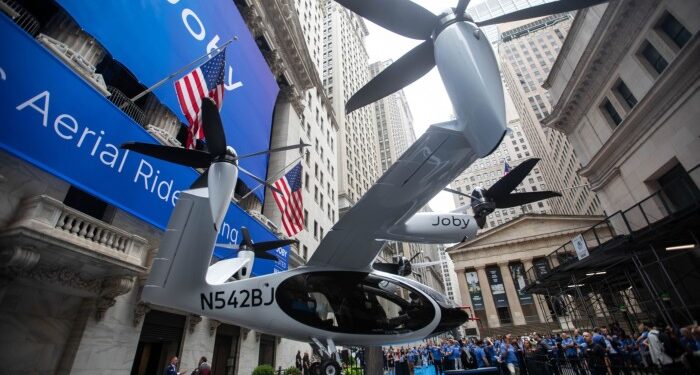Unlock the Editor’s Digest for free
Roula Khalaf, Editor of the FT, selects her favourite stories in this weekly newsletter.
To have faith in the recent uptick of multibillion-dollar valuations for tech start-ups that have no profits, no sales and no product to speak of, you have to believe normal rules do not apply.
This, of course, is exactly what founders of artificial intelligence companies want you to think.
DeepMind co-founder Sir Demis Hassabis remembers feeling indignant when investors asked him about returns a decade ago. “I’m telling you this is the most important thing of all time,” he says in The Thinking Game, a new documentary about his company. “And you’re asking me how you’re going to make money? What’s your product? It’s like, so prosaic a question.”
To secure funding, DeepMind says it had to find people who wanted to invest not because they thought it was the best investment decision, but because they thought it was cool.
Thinking something is cool is as good an explanation as any for the valuations currently being applied to companies pursuing theoretical technology — sums that far exceed DeepMind’s before it was bought by Google for about $400mn.
Last month, Thinking Machines Lab, an AI “research and product” company launched by OpenAI’s former chief technology officer Mira Murati, was reported to be seeking $1bn in funding at a $9bn valuation. Assessing that on traditional metrics such as a multiple of revenue is impossible. Not only does Thinking Machines Lab generate no revenue, it has yet to specify what it might sell.
Murati’s former colleague Ilya Sutskever, ex-chief scientist at OpenAI, is going one further. His pre-revenue, pre-product AI company Safe Superintelligence is in talks to raise funds at a $30bn valuation.
Support for so-called pre-revenue start-ups, along with a recent revival of broader start-up funding, may look like a reassuring marker of confidence in the future of tech and the world at large. But we have been here before. AI euphoria means investors are handing start-ups the sort of sums last seen in 2021 — a year when flying taxi start-ups with no aircraft and no sales were able to attract billions of dollars in funding.
While this week marks the 25-year dotcom crash anniversary, investors might also consider the less widely referenced highs and lows of 2021. Back then it seemed as if tech products and services useful in lockdown had become irreversibly embedded into everyone’s lives. Video call company Zoom began talking about building “Zoom rooms” so that everyone could be on video calls all the time. Interest rates were grazing the floor, economies were opening up and money was easy to come by. Spac — special purpose acquisition companies — mergers enabled early stage start-ups with lots of projections and not many disclosures to list on markets. Life was good.
Good, that is, until the great correction of 2022 when a sell-off knocked the Nasdaq down by a third. As rates rose, investors narrowed their eyes and looked again at speculative, pre-revenue companies like the flying taxi developer Joby Aviation. Perhaps, they wondered, some of the projections had been overly optimistic.
Surprise, surprise, they were. Joby expected to have a commercial aerial ride-sharing service in place by 2024. As you will have noticed, there are no flying taxis buzzing in the air around us yet. Last year, the company generated revenues of just $136,000.
The US Securities and Exchange Commission has since tweaked its rules so that companies that go public via Spac mergers should disclose more and project less. But that doesn’t help the start-ups that raised large sums at high valuations in 2021 and now struggle to find funding. Nor will it have much effect on valuations for pre-revenue AI start-ups in 2025. Who needs to list when venture capital firms are willing to put up billions of dollars? And who needs projections when your technology doesn’t even exist yet?
It’s true that start-up funding is often an exercise in optimism and faith in founders. But pre-revenue start-ups usually press friends and family for thousands of dollars — not billions.
AI requires much more expensive computing power. Yet some of these companies also defy the logic usually applied to later stage, large tech funding rounds. With no sales there is no way to compare valuations. And if sales are not important and the focus is on truly world-changing tech then why stop at a $9bn or $30bn valuation? Why not go even higher?
Perhaps they will. But the lesson from 2021 is that the valuations with no anchor to commercial reality are the ones most at risk if the market turns.





